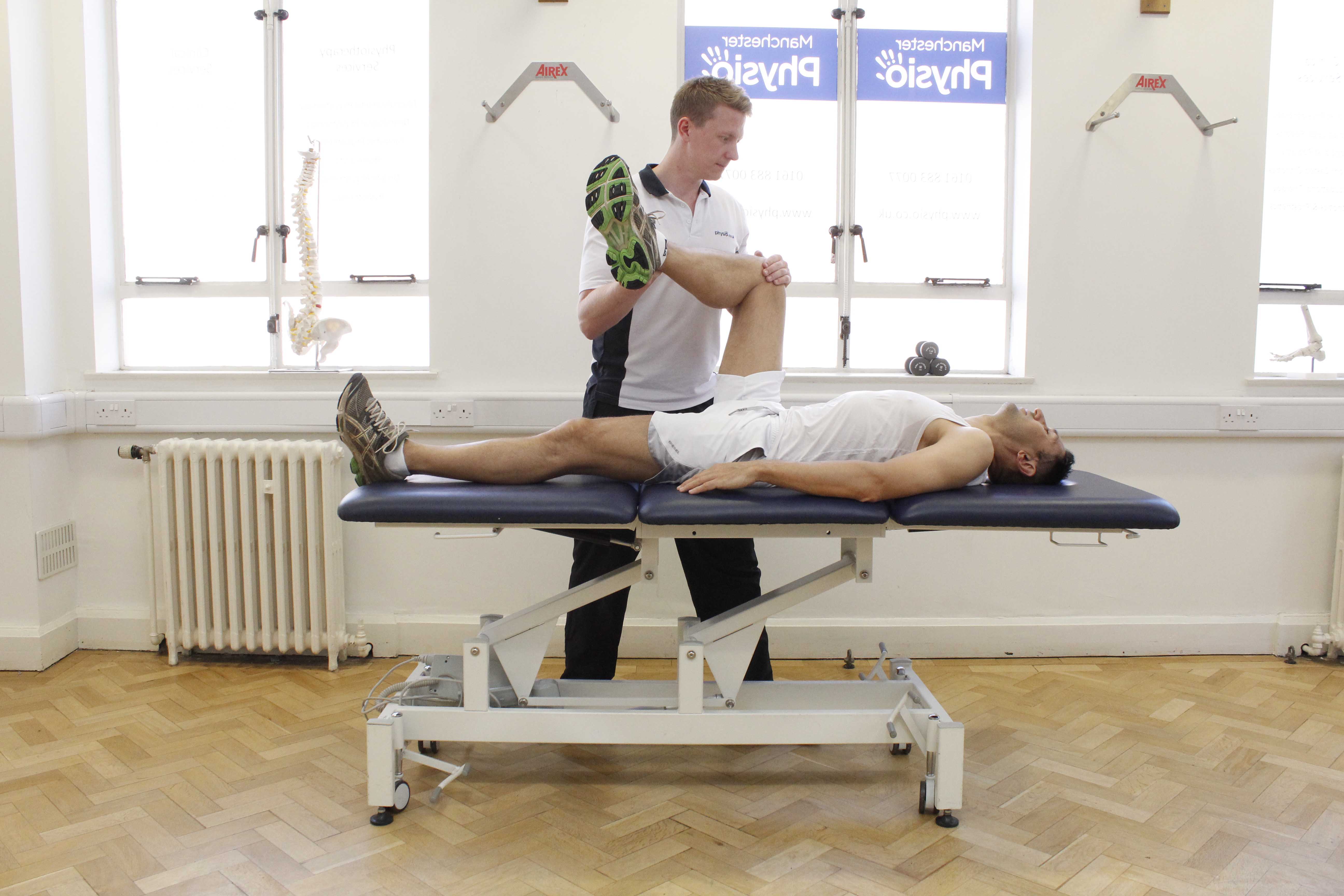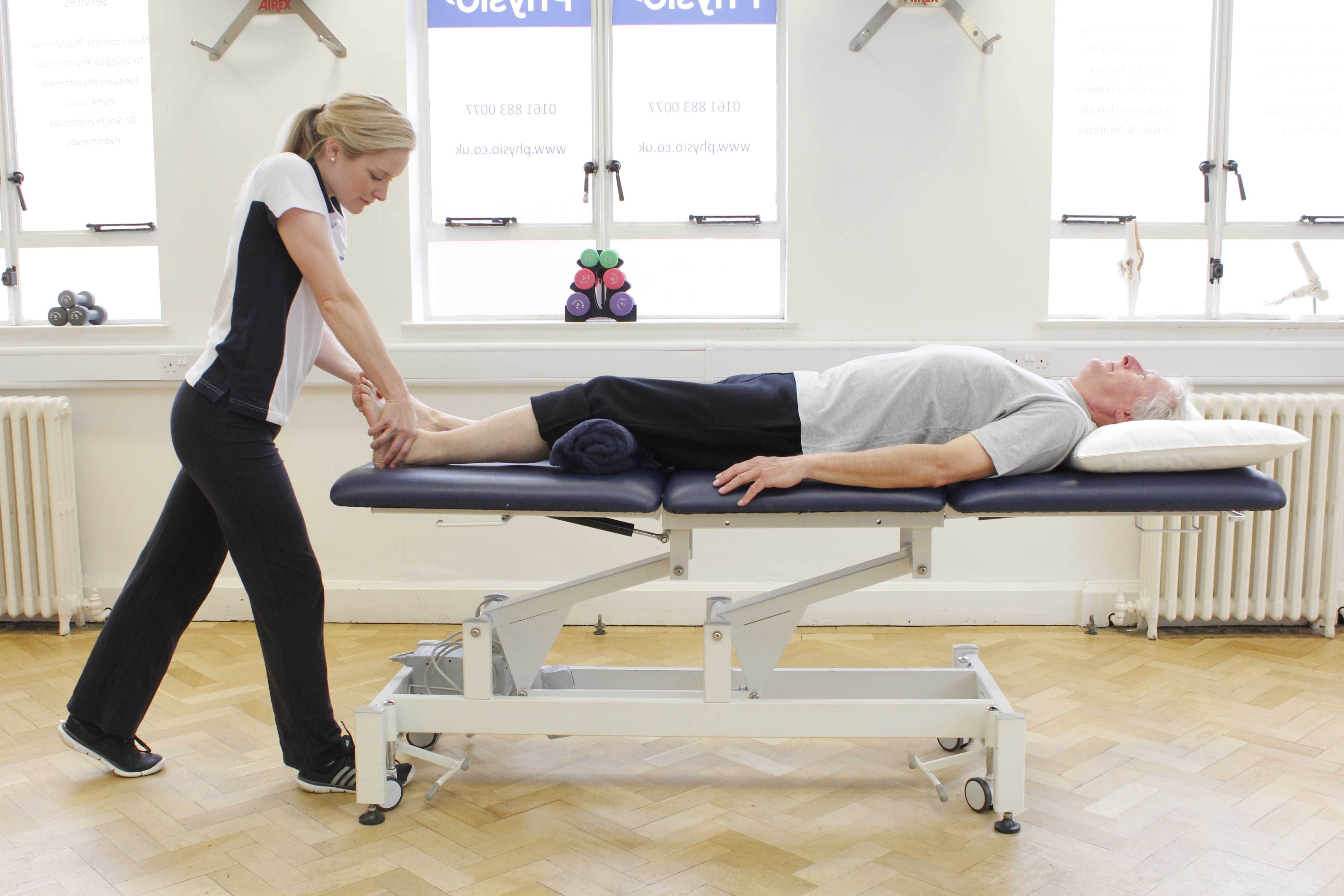What is Huntington’s disease?
Huntington’s disease is a hereditary neurological condition which affects the nerve cells in the brain causing difficulties with movement, cognition and behaviour. Huntington’s disease is progressive and causes gradual loss of function of areas of the brain.
Huntington’s disease affects both men and women and symptoms usually develop in adulthood between the age of 35 and 55 years.
Huntington’s disease is a hereditary condition. Some people inherit the disease but do not develop symptoms till later on in life. This means they are unaware that they carry the condition and may have children and pass on it on without realising.
A person with Huntington’s disease will have one good copy of the gene and one defective copy of the gene. Their children will therefore have a 50% chance of developing Huntington’s disease.This pattern of inheritance is called autosomal dominant.
Physiotherapy treatment will target difficulties with movement and posture and improve balance, coordination and everyday activities.
 Above: Experienced physiotherapist performing hip and knee stretches and mobilisations to reduce pain and muscle tone.
Above: Experienced physiotherapist performing hip and knee stretches and mobilisations to reduce pain and muscle tone.Diagnosis of Huntington’s disease
If Huntington’s disease runs in the family a blood test can confirm a diagnosis.
What causes Huntington’s disease?
Genes are the instructions for making a human being which are collated to form chromosomes. Huntington's disease is caused by a defective gene that is found on chromosome number four. It is unclear what causes this defective gene.
This defective gene causes damage to the nerve cells in areas of the brain including the basal ganglia and cerebral cortex. This results in problems with voluntary movement and posture.
What are the effects/symptoms of Huntington’s disease?
There is no characteristic pattern of symptoms as Huntington’s disease affects everyone differently. These effects may include:
 Above: Ankle stretches and mobilisations to relieve pain and stiffness.
Above: Ankle stretches and mobilisations to relieve pain and stiffness.Behavioural problems
Behavioural changes are often the first symptoms to appear in Huntington's disease and may include:
- A lack of emotions and not recognising the needs of others in the family,
- Mood swings
- Personality changes
- Aggression
- Apathy/depression
- Difficulty concentrating on more than one task, which causes irritability,
- Short-term memory lapses, and loss of concentration
- Difficulty communicating (expression and understanding)
Physical problems
Huntington's disease affects movement and symptoms include:
- Uncontrollable movements of the face
- Jerky, uncoordinated movements of the limbs and body
- Slow and rigid movements
- Difficulty walking
- Loss of coordination/clumsiness
- Poor balance
- Increased risk of falling
- Difficulty swallowing
Physiotherapy for Huntington’s disease.
At Physio.co.uk we understand that the onset of Huntington’s disease can be frightening and stressful and that it affects people differently. It is important to seek treatment as physiotherapy can benefit many people with Huntington’s disease. Huntington’s disease is progressive and physiotherapy is important at all stages of the condition as it will improve your physical functioning as much as possible for as long as possible. Physiotherapy will be focused on:
- Increasing cardiovascular fitness
- Increasing muscle strength
- Preventing soft tissue shortening
- Improving balance and coordination
- Improving fine hand movements
- Increasing confidence and sense of well being
- Preventing the risk of falling
- Improving walking
- Improving postural stability on sitting standing and walking
- Improving breathing
- Increasing awareness of where your limbs are in space at rest and during activity
Our dedicated neurological physiotherapists at Physio.co.uk will work closely with you and those around you in order to provide treatment that is tailored to your individual needs. Treatment will be centred on maximising your quality of life and independence and may include:
- Exercises to increase mobility
- Hand exercises to maintain fine motor coordination and gripping objects
- Exercises to improve posture and positioning to help support your body when sitting or standing
- Anticipating and minimising secondary complications such as muscle contractures, pressure sores and chest infections
- Activities to increase muscle strength and muscle length. The physiotherapist can help with muscle rigidity commonly experienced in the later stages
- Transfer practice in order to increase awareness of their body position, spatial awareness and promote independence. Teaching family and carers to transfer is important and should be extended from the physiotherapy session into the daily routine
- Hydrotherapy treatment to help relax muscles so that more effective stretching may then take place. Standing and walking practice can also take place in the water
- Assessment of the home environment and exercises to prevent the risk of falling
- Advice on provision of walking aids and orthotic devices to improve independence

 0330 088 7800
0330 088 7800

































